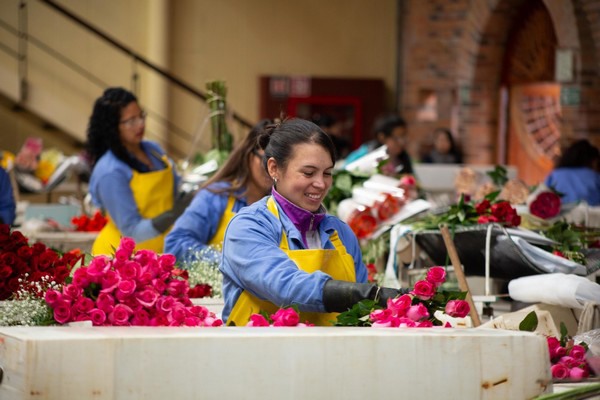“Floriculture continues to be one of the most important sources of steady work in the rural areas of Colombia. Throughout the pandemic, we have made a huge effort to maintain 150,000 direct and indirect jobs generated by this activity. Apart from that, the Valentine´s season creates an average of 20,000 temporary jobs –which comply with all the legal requirements−, showing the great contribution of this sector to the labor stability of our country,” said Augusto Solano, President of Asocolflores.
And he concluded: “Although the economic recovery has been slow in the countryside, our sector is also committed to generating new jobs, promoting job opportunities for the young, and offering financial benefits to its workers and their communities. The flower growing sector pays every month an extremely significant average of 200 billion pesos in wages in the agricultural areas of the country.”
For the upcoming Saint Valentine´s season, logistics and transportation continue to be the principal areas on which the flower producers concentrate in order to guarantee the availability of flowers and thus comply with standing orders. During Valentine´s some 650 million stems will be exported mainly to the United States, representing around 15% of the total yearly exports.

Solano also added that “it is important to remember that a good part of the success when exporting flowers depends on the logistics chain. Surrounded by extreme sanitary conditions in the country, the flower producers have been able to work under strict preventive sanitary measures. Today, this huge effort confirms the availability of flowers to cater for Saint Valentine´s orders, but we depend on the availability and timely schedules of international flights, on the condition of maritime transportation and also on any new restrictions adopted by other countries”.
Therefore, during Valentine´s celebration, special attention is given to the mobility of cargo, as well as preventing illegal actions to guarantee a seamless flow of the so-called Petal Plan: a security scheme with the participation of the authorities (The Colombian Agricultural Institute, ICA; the National Police; the National Directorate of Taxes and Customs, Dian; and the Transport Superintendency) and other actors of the logistics chain (airports, ports, cargo dispatchers and airlines, amongst others).
Solano emphasized that “the Petal Plan, established in 2006 and managed by our business association, strengthens the standardization of various processes within the sector´s logistics chain preventing physical contact and Covid-19 transmission risks”.
Ultimately, for this Saint Valentine´s celebration, e-commerce will become consolidated as a preponderant sales tendency in transactions with large wholesalers and flower shops, especially those that serve the new generation of customers.

 Asocolflores
Asocolflores